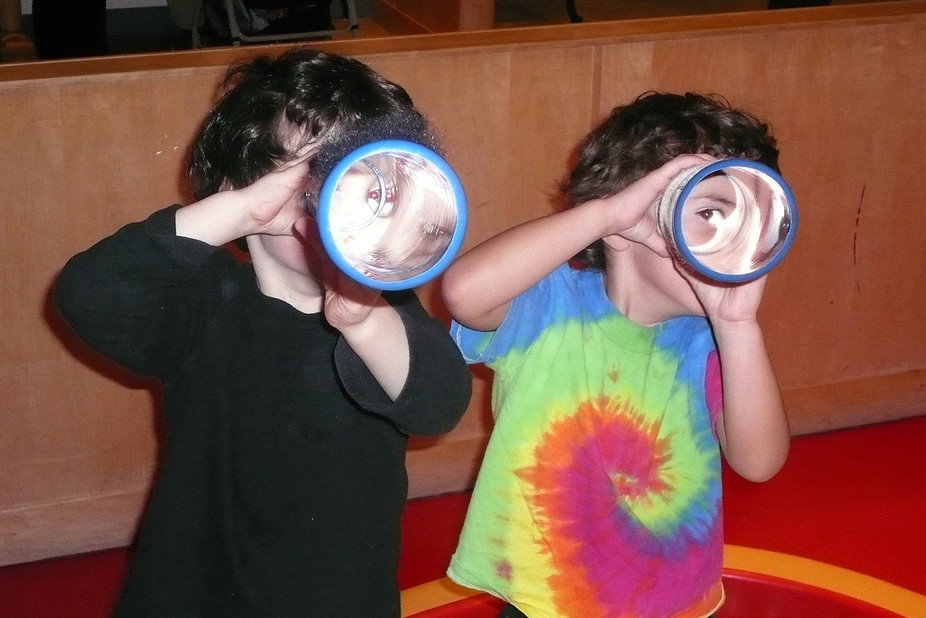Exploring Developmentally Appropriate Practice

As a practitioner caring for kids, it is your responsibility to seek out and intentionally plan the best opportunities for kids that support their overall well-being and healthy development. The practices you use when working with young kids need to embrace the most current approaches in learning and development. These can be described as best practices or Developmentally Appropriate Practices (DAP). DAP comes from a deep history in early education, research, and what many describe as “good thinking.”
National Association for the Education of Young Children states, “DAP is informed by what we know from theory and literature about how kids develop and learn.” In its DAP Key Messages of the Position Statement, NAEYC shares the following in defining DAP:
- Developmentally appropriate practice requires meeting kids where they are—which means that educators must get to know them well— to reach challenging and achievable goals.
- All teaching practices should be appropriate to kids’ age and developmental status, attuned to them as unique people, and responsive to the social and cultural contexts in which they live.
- Developmentally appropriate practice should not mean making things easier for kids. Rather, it means ensuring that goals are suited to their learning and development and challenging enough to promote their progress and interest.
- A best practice is based on knowledge—not on assumptions—of how kids learn and develop. The research base yields major principles in learning and human development. These principles, along with evidence about curriculum and teaching effectiveness, form a solid basis for decision-making in early care and education.
Developmentally appropriate practice is an educational perspective that supports optimal healthy development for every kid. DAP embraces both continuity and change; continuity because it guides a tradition of quality early learning and change as it integrates new research, knowledge, and science regarding kids’ development and learning.
Kid development principles that inform DAP
1. Every domain of development is essential.
2. Most aspects of kids’ learning and development happen after well-documented sequences.
3. Development and learning proceed at different rates from kid to kid.
4. Development and learning result from dynamic and continuous interaction of biological maturation and experience.
5. Early experiences profoundly affect a kid’s development and learning, and there are optimal times for certain learning and development to happen.
6. Development proceeds toward more complexity, self-regulation, and symbolic abilities.
7. Kids develop best when they have secure relationships with responsive caregivers and peers.
8. Development and learning happen within and are influenced by social and cultural contexts.
9. Kids learn in a variety of ways and are actively engaged in learning.
10. Play is the main way that kids learn and develop self-regulation.
11. Development and learning happen when kids are slightly challenged and through practice.
12. Kids’ dispositions and behavior are shaped by experiences and affect kids’ learning and development.
DAP: A decision-making tool
As an early childhood professional working with kids, you are a decision-maker, and you will make many decisions about the kids in your program daily. Understanding DAP – it’s meaning and intentional practices – is essential in guiding your decisions for young kids. Developing the skills to make sound decisions for kids relies on building knowledge about individual kids and kid development principles combined with knowledge of effective early learning practices. These are the main considerations in developmentally appropriate practice.
Knowledge of individual kids and kid development principles
DAP is informed by 3 areas of knowledge that are critical components in making good decisions for kids.
1. Kid development appropriateness
Kid development follows general, sequential patterns and is interrelated across domains. Know and understand milestones and structures of development in every domain and use kid development info for planning and identifying activities, environments, experiences, and strategies to best promote growth and learning.
2. Individual appropriateness
Each kid is an individual and develops in their own unique way. Know each kid’s strengths, abilities, needs, challenges, interests, and approaches to learning. Know their skills, ideas, and joys. This can be accomplished through time spent together, observation, assessment, work samples, documentation, and info from families and past educators/programs.
3. Social and cultural appropriateness
All kids are of culture. Know each kid’s cultural and family background. Make sure that the learning experiences you provide respect these and are meant for each kid/family. What makes sense to kids is their own culture, and educators must consider this, along with the overall kid development and learning program.
Knowledge of effective early learning practices
DAP focuses on 5 key areas of early learning practices:
- Creating a caring community of learners. Build positive and responsive relationships between kids, staff, families, groups, and within the program, to create a community that supports all kids as they develop and learn to their capacity in all domains.
- Teaching to enhance development and learning. Provide a balance of teacher-directed and kid-initiated activities and plan experiences that meet individual needs, interests, and learning goals.
- Planning curriculum to meet essential goals. Develop a curriculum that reflects developmental milestones and appropriate early learning goals for kids and supports individualized learning.
- Assessing kids’ development and academic performance. Link assessment to curriculum and learning standards and leverage authentic assessment methods to measure a kid’s progress.
- Developing mutually beneficial relationships with families. Work in tandem with families to learn about each kid, develop 2-way communication, and establish supportive relationships with all families.
What did we miss?





